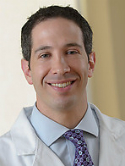The hardest weeks of my life: A qualitative study of experiences, practice changes, and emotional burden of New York City oncology physicians during the COVID-19 surge in 2020 Journal Article
| Authors: | Lynch, K. A.; Green, A.; Saltz, L.; Epstein, A. S.; Romano, D. R.; Vera, J.; Nelson, J. E. |
| Article Title: | The hardest weeks of my life: A qualitative study of experiences, practice changes, and emotional burden of New York City oncology physicians during the COVID-19 surge in 2020 |
| Abstract: | PURPOSE: The COVID-19 pandemic surge in New York City in Spring 2020 resulted in an unprecedented constraint on health care resources. This study aimed to explore the experiences of doctors providing care to oncology patients during this time. METHODS: Hospitalists and medical oncologists from two large inpatient services at a dedicated cancer center participated in virtual in-depth interviews exploring how the pandemic affected their practice and to what extent it may have affected decisions for urgent evaluation or hospital admission, interventions, or goals-of-care discussions. Interviews also explored how the pandemic affected each individual physician's psychologic well-being. Transcripts were analyzed by three independent coders in Atlas.ti v. 7.5, using a thematic analysis approach. RESULTS: Eighteen physicians were interviewed (n = 6 GI medical oncologists, n = 6 gynecologic medical oncologists, and n = 6 hospitalists). Analysis identified five major themes related to fear and distress: (1) perceived patient fears of the hospital during COVID-19, leading to avoidance and delay of acute care needs before admission, (2) physicians' fear and distress delivering oncology care during COVID-19, (3) physician distress resulting from ambiguity in decision making, (4) distress and anxiety balancing the need for patient contact with the need to minimize infection risk, and (5) distress regarding impact of uncertainty and acuity of COVID-19 on goals-of-care discussions. CONCLUSION: Insight into the experiences of physicians providing cancer care during a COVID-19 surge underscores the need for strategies mitigate short-term distress and long-term psychologic impacts. Findings can also inform practitioner training and preparedness for future pandemics in the oncology setting. |
| Keywords: | neoplasm; neoplasms; psychology; physicians; physician; new york city; new york; pandemic; humans; human; female; pandemics; covid-19; sars-cov-2 |
| Journal Title: | JCO Oncology Practice |
| Volume: | 18 |
| Issue: | 5 |
| ISSN: | 2688-1527 |
| Publisher: | American Society of Clinical Oncology |
| Date Published: | 2022-05-01 |
| Start Page: | e669 |
| End Page: | e676 |
| Language: | English |
| DOI: | 10.1200/op.21.00585 |
| PUBMED: | 34936377 |
| PROVIDER: | scopus |
| PMCID: | PMC9797244 |
| DOI/URL: | |
| Notes: | Article -- Export Date: 1 June 2022 -- Source: Scopus |
Altmetric
Citation Impact
BMJ Impact Analytics
Related MSK Work









